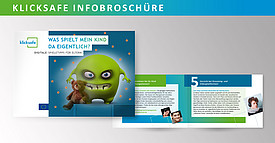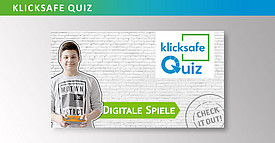Digital gamesHow can games be used in the classroom?

A good overview of the various possibilities is provided by the Federal Agency for Civic Education. Here you can learn about the different areas of application in the school context. Because not all video games are the same: Educational games are developed specifically for the didactic context. Serious games deal with a serious topic, such as mental illness or historical topics like the Holocaust. And of course there are the mainstream games that most children and young people are already familiar with and perhaps play themselves.
The type of game thus also determines to a certain extent what points of contact there are in the classroom. Educational games are better suited to motivate students in repetition-intensive subjects such as mathematics. Serious games with historical content, on the other hand, are a good way to impart knowledge in history lessons.
Join the European research project "Games in Schools
Do you work at a school and design lessons? Then take part in the survey "Games in Schools take part! It doesn't matter if you already use video games in the classroom or if you haven't had any contact with this topic yet. Everyone can participate.
As part of the "Games in Schools" initiative European Schoolnet is conducting a large-scale research project to determine how video games are used in teaching and learning in schools across Europe.
Using games in the classroom - but how?
Would you like to try out integrating video games into your lessons, but don't know how? Here we have collected good offers for you, which give concrete examples for the use of games in school.
Games in the classroom
On the website of "Games im Unterricht" you can find elaborated teaching concepts as well as background information about digital games in school. This makes it possible to use games in the classroom even with little previous knowledge.
Learning by Playing - 17 Innovative Games Concepts for Schools and Youth Education
At medien+bildung.com you can order or download the brochure "Spielend lernen - 17 innovative Games-Konzepte für Schule und Jugendbildung" free of charge . The 36-page brochure contains an introduction to the topic "Learning by playing - learning with games - learning about games", 17 method descriptions for school and out-of-school practice from "Learning Apps" to "Digital Outdoor Games" and "Game Development with Scratch" to "check the games". Further links and recommendations conclude the booklet.
Best Practice Compass: Computer Games in the Classroom
Anyone who wants to deal comprehensively with the topic of games in the classroom has a good companion at their side with the Best Practice Compass from the Media Authority of North Rhine-Westphalia. On 138 pages, you will find extensive basic knowledge on the topic and a core curriculum analysis. The heart of the publication, however, is the diverse collection of materials. A total of 91 materials have been identified as recommendable for teachers. Each material is accompanied by a brief description, an assignment to the core curriculum, and much more.
Game-based learning with Minetest
Minetest is an open source, free game engine. It can be used to create virtual worlds. The server dashboard BLOCKALOT offers educational professionals the possibility to create and manage learning spaces with Minetest themselves. In addition, there are many pedagogical support offers on the associated website. The Landesmedienzentrum Baden-Württemberg (LMZ) explains how to use BLOCKALOT for game-based learning. Two handouts have been published for this purpose.




